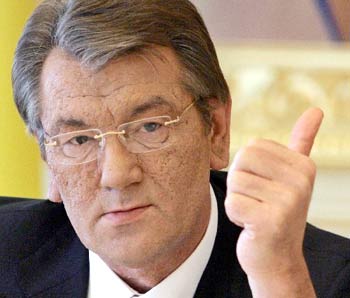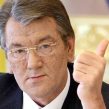
Russia’s New Ukrainian Disinformation Campaign
Publication: Eurasia Daily Monitor Volume: 6 Issue: 176
By:

Disinformation, or the planting of false information to deceive or smear an enemy, is now being regularly used by both government and non-governmental players in Russia and Ukraine in the fierce battles for control of power and assets in these countries. During the January 2009 "gas war" between Ukraine and Russia, the Russian leadership accused Ukraine of preventing Russian gas from reaching customers in the E.U. The charges were shown to be blatantly false, but were repeated by Russian spokesmen in order to discredit Ukraine as a gas transit country, while building up support within Europe for the North Stream and South Stream pipeline projects. In what might have been a possible retaliation for this, Ukraine launched its own stealth campaign, claiming that the Russian consulate in the Crimea was handing out Russian passports to Russians living in the peninsula. Ukraine was never able to prove these charges, but the idea took hold and many Ukrainians seemed convinced that these "passports" were meant to stir up the Crimean population and were a prelude to the forcible separation of Crimea from Ukraine by Russian armed might.
In September a new and apparently more elaborate disinformation campaign began. This time it was between competing Ukrainian political parties, one of which seemed to be aided by the Russian media. The campaign is centered on the poisoning of Viktor Yushchenko in 2004 during the hotly contested presidential election in Ukraine, which Yushchenko eventually won. Members of the pro-Russian Party of the Regions, led by Viktor Yanukovych, have long claimed that the poisoning of Yushchenko was concocted and that the United States played a key role in this "hoax," meant to win sympathy votes for the pro-Western Yushchenko and discredit Russian politicians who openly supported Yanukovych in 2004.
This conspiracy-disinformation attempt did not gain a significant following at first, and was apparently shelved, but with new presidential elections scheduled to take place in Ukraine in January 2010, the old charges surrounding the poisoning were resurrected, and new lurid details were added and set in motion. On September 18 the Ukrainian newspaper Segodnya published a sensational report stating that Larysa Cherednichenko, the former head of the department for supervision over investigations into criminal cases of the Ukrainian prosecutor general’s office, claimed that high-ranking officials from the presidential secretariat and family members of Yushchenko had falsified evidence in his poisoning case (www.kyivpost.com, September 19).
"As [Davyd] Zhvaniya [member of the Our Ukraine People’s Self-Defense faction of the Ukrainian parliament, who has more than once denied Yushchenko’s poisoning] said, the victim had blood samples taken from him in September-October 2004 with help from an Austrian doctor. However, the samples were not studied in Ukraine or another European country. They were secretly taken to the U.S., where they were enriched with dioxin and were later taken to the U.K. with help from the U.S. special services."
The scenario provided by Zhvaniya was elaborated upon in the Russian newspaper Kommersant Daily on September 24. Kommersant quoted a report in its possession that Cherednichenko ordered a forensic test of a conversation recorded between two persons speaking primarily in English interspersed with occasional Ukrainian.
The conversation was about an unnamed American intelligence service whose agents were due to take Yushchenko’s blood sample to Austria. Furthermore, the investigation claimed that one of the voices on the recording belonged to Kateryna Yushchenko, the wife of Viktor Yushchenko and the other voice to Roman Zvarych, a former Ukrainian justice minister and close supporter of Yushchenko (Kommersant, September 24).
What the paper failed to mention was how and where this alleged recording was made and by whom?
Both Kateryna and Zvarych were born in the United States and belonged to the same Ukrainian nationalist organization until moving to Ukraine in the 1990’s where they eventually obtained Ukrainian citizenship. After Yushchenko’s election as president, Kateryna was often accused in the Russian media of being a U.S. CIA agent.
According to a report on the BBC on January 28, 2005, "In 2001, the Russian television presenter Mikhail Leontiev, known for his controversial pro-Kremlin sympathies, accused Kateryna Yushchenko of being a "CIA agent" sent to Ukraine to bring her husband to power. Kateryna Yushchenko subsequently won a libel case in a Ukrainian court against Leontiev and his "Odnako" [However] program."
Austrian doctors responsible for examining Yushchenko several months after the poison was reportedly administered said the Ukrainian politician had ingested a concentrated dose of dioxin. The powerful toxin caused bloating and pockmarks on Yushchenko’s face, giving his skin a greenish hue and adding a macabre note to a tumultuous political season culminating in the mass Orange Revolution protests in December 2004.
For unexplained reasons, the current disinformation campaign fails to name who poisoned Yushchenko and why.




